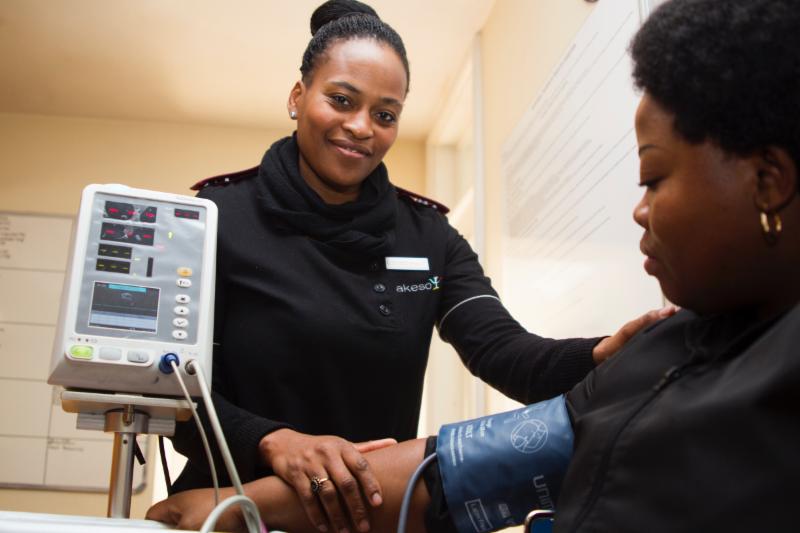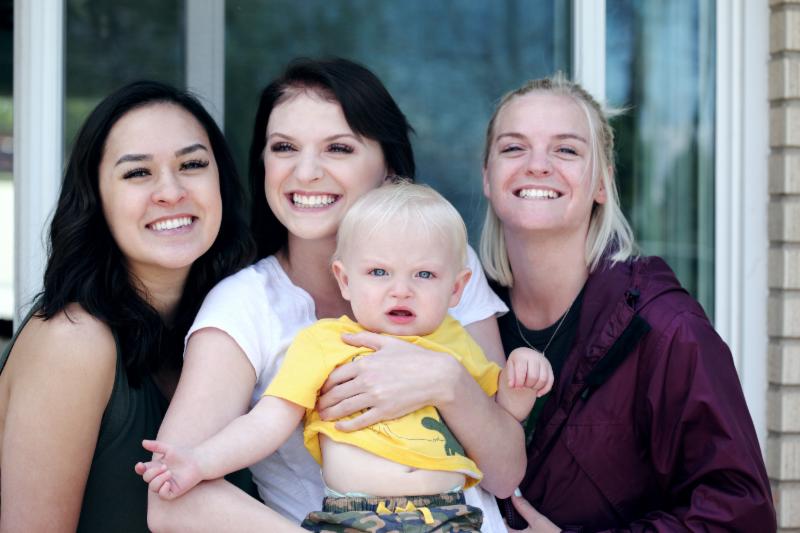 |
Upcoming Events
Preconception CoIIN Webinar,
"Authentic Engagement: Bridging the Clinic-Community Connection" on
May 29th - 12-1pm ET.
We will hear from Kenn L. Harris, Vice President of Community Engagement at The Community Foundation and the Director of the New Haven Federal Healthy Start program about how to build true clinic / community partnerships.
Mid-Year All-Site Virtual Meeting:
June 7th - 12-2pm ET. This call will be a time for sites to share updates, lessons learned, and discuss successes and challenges related to this project.
Details forthcoming.
|
Now Streaming: Add this to your podcast queue!
 "New approaches to patient-centered reproductive goals assessment," presented by Dr. Sonya Borrero focused on clinical/practical applications for a patient-centered approach to reproductive life planning.
"New approaches to patient-centered reproductive goals assessment," presented by Dr. Sonya Borrero focused on clinical/practical applications for a patient-centered approach to reproductive life planning.
 "
Integrating Quality Women-Centered Care into Practice: Insights from Magnolia Clinic,
"
"
Integrating Quality Women-Centered Care into Practice: Insights from Magnolia Clinic,
"
Jaci Murphy, BSN, RN, Assistant Executive Community Health Nursing Director, Florida Department of Health in Duval County. Hear how health centers and sites can leverage community partners and programs to provide quality, women-centered care.

|
|
Human-Centered Design Workshop
at Sutter Health
Sutter Health gathered for a human-centered design workshop. Ryan Spielvogel led a fun session, full of great and innovative ideas from the team in February.
The entire workshop lasted one hour and each part was timed to the minute. Participants included residents, faculty and some medical assistants, who all contributed out-of-the-box ideas that were voted upon. Their design team then plotted
the top ideas on a 2x2 graph of feasibility vs impact. Once the team
prioritized the ideas in the high-impact-high-feasibility section, they created a prototype for testing.
Many thanks to all who were involved, and a huge congratulations to the team on a successful HCD event! Here are a couple photos of the HCD fun in California!
|
|
Keeping Black Maternal Health Week Conversations Going
If you missed #BMHW19, it is not too late to get involved with Black Mamas Matter and their partners!
See how.
|
|
What Do Preeclampsia and Heart Health Have in Common?
May is Preeclampsia Awareness Month, and the Preeclampsia Foundation is leading a campaign to inform women about the signs, symptoms, and impact preeclampsia has on long-term health of mothers.
Did you know that women with preeclampsia, a pregnancy disorder, have an increased risk for heart disease as well as stroke and high blood pressure later in life?
Learn more and get involved.
Related, there is a webinar, "Preconception and multigenerational health: Links between cardiovascular and reproductive health" taking place on May 2nd 12:30pm.
Register here.
|
Preconception Health Bi-weekly Updates
|
Are you signed up to receive
the
CDC's bi-weekly updates on preconception and interconception health? The latest research, articles, new campaigns and resources will be sent straight to your inbox. Email
Cheryl Robbins
(ggf9@cdc.gov) with "subscribe." A great resource for everything happening in the industry, across the country - and world!
|
|
|
Stay connected! Follow along and join the conversation:
|
|
ABOUT HRSA IM CoIIN PRECONCEPTION PROJECT: This project is supported by the Health Resources and Services Administration (HRSA) of the U.S. Department of Health and Human Services (HHS) under grant number UF3MC31239-Providing Support For The Collaborative Improvement and Innovation Network (CoIIN) To Reduce Infant Mortality. The grant amount totals $1,494,993. This information or content and conclusions are those of the author and should not be construed as the official position or policy of, nor should any endorsements be inferred by HRSA, HHS or the U.S. Government.
|
|
 |
|
 |
|
|
Advancing and Celebrating Women's Health
|
|
|
Join us in advancing women's health this month. Follow us on social media as we share work from partners to understand, evolve, and improve well woman care.
Mark your calendars: Women's Health Week (NWHW) is May 12-19, 2019 with the
#NWHW kick-off on
Mother's Day. Celebrate the women you love and the work being done to improve women's care.
|
|
Understanding and Supporting Well Woman
|
 How we engage with women about their health - in our clinics, communities, online, and otherwise - matters. Done right, it has the power to change lives.
Although 65% of women ages 18-35 had a preventive visit in the last year, how they understand, manage, and access their health visit differs. Thankfully, we are seeing more organizations taking the time to listen to and learn from women about how to effectively reach and educate them
about
preventive care. This is something our PCH IM CoIIN sites are focusing on now. As part of our work we continue to reach out to partners across the country to learn from other work underway. How we engage with women about their health - in our clinics, communities, online, and otherwise - matters. Done right, it has the power to change lives.
Although 65% of women ages 18-35 had a preventive visit in the last year, how they understand, manage, and access their health visit differs. Thankfully, we are seeing more organizations taking the time to listen to and learn from women about how to effectively reach and educate them
about
preventive care. This is something our PCH IM CoIIN sites are focusing on now. As part of our work we continue to reach out to partners across the country to learn from other work underway.
The "
Power Your Life, Power Your Health
" campaign from the Utah Department of Public Health has been working to understand the knowledge and behaviors of young women surrounding their care, particularly their well woman visit. O
ver the past year, Power Your Life, Power Your Health met with in both rural and urban areas of Utah to better understand how women access and think about their health care visit.
From their focus groups, Power Your Life, Power Your Health has been able to identify opportunities and challenges in communicating and supporting these preventive visits. Below is a report with key themes from their work:
Understanding the Terminology
Women understood the terms "routine check-up," "preventive care," and "well-woman exam" differently.
To some, a routine check-up means getting lab work and being weighed and to others, it means going to an OB/GYN for a Pap smear and breast exam. Most participants thought preventive care
was similar to a routine check-up but they did state that it also included preventing or early detection of diseases (such as cancer) that might run in a woman's family.

Understanding Well-Woman Exams
When asked about well-woman exams,
most women stated that it meant OB/GYN care, such as a Pap smear and breast exam. While some spoke of birth control and family planning, a few women had not heard the terms preventive care or well-woman exam. When
asked what a routine check-up meant to them, common responses were "blood work," "lab work," "Pap," and "breast exam." Most women stated one or two of them.
Understanding Who Provides Care
Since women assign different meaning (and thus different functions) to each of these terms, they have varying opinions as to which type of medical provider a woman should visit for each check-up.
Some women associated routine check-ups with family practitioners, others with primary care providers, and some with OB/GYNs. Focus group participants shared similar thoughts when speaking about preventive care. A couple of the younger women still identified a routine check-up
as their pediatric appointment.
Understanding How Often to Get Care
An interesting strategy to come from their focus groups is moving from messages of going to a doctor every year for a well-woman exam to age-related recommendations for screenings and counseling.
Most women across all of the focus groups responded that a year is the optimal time. Several participants added the caveat that one might need to go more frequently based on specific doctor recommendations.
Age and Experience Matters

Younger, unmarried, less-experienced women knew less about preventive care and well-woman exams than their counterparts did. Some did not understand the concept, and referred to their dental or pediatric appointments.
Younger women (who were not mothers) tended to more frequently talk about blood work, and th
e women who did not know the terms preventive care or well-woman exam were not mothers.
Mother's Care
Some of the variance in definition can be attributed to age and experience, particularly whether the participant is a mother.
The mothers in the focus groups more readily identified OB/GYN care as part of routine, preventive, and well-woman care, while the non-mothers did not make this association. The mothers reported more understanding of the visit and exams, and also felt more comfortable interacting with their provider during the visit.
 Barriers and Judgement Barriers and Judgement
Across the focus groups cost is stated as an issue. Even with insurance, the cost of the co-pay was a barrier. Many women did not realize the well visit was covered by insurance.
In rural areas, not having a provider in their community or long wait times were issues. Scheduling issues arose with limited 9-5pm Mon-Friday appointments. A few of the women shared
feelings of being judged by their doctors and feeling like they are not valued by them. This impacts their motivation to go for well-woman and preventive health checks.
Also mentioned: insurance understanding, childcare, and provider relationships.
Younger, unmarried women stated that fear and discomfort were reasons to put off or skip a visit.
Motivation to Schedule a Visit
The most commonly stated motivators included becoming sexually active; giving birth; feeling concerned that something is wrong (often related to their menstrual cycle); or have a family history of disease, such as cancer.
Well Woman Campaign and Tools
Power Your Life, Power Your Health is currently updating their website and resources to better support
and
educate
about
the
importance of
the
well visit.
You can visit their website to view new well woman informational tools. Their team put together a social-media, patient education video about the well visit - be sure to repost this on your Facebook, Instagram, and Twitter accounts!
|
To learn more about the work being done in Utah to raise awareness about the well woman visit, email NPalacios@Utah.Gov.
|
|
Read How Oklahoma is Celebrating Women's Health Month
Glad to see our PCH IM CoIN partners in the news!
"In recognition of Women's Health Month, the Oklahoma State Department of Health (OSDH) is addressing five key health topics affecting women in all stages of life. Those topics include breast and cervical screenings, preconception health, congenital syphilis, smoking and using e-cigarettes during pregnancy, and postpartum depression."
From the local news article,
OSDH Director of Maternal and Child Health Service Joyce Marshall stated, "Women's Health Month is a great opportunity to remind women to make their health a priority, and to build positive health habits. We encourage women of all ages to talk to a health care provider about recommended preventive screenings and ways to develop healthy living habits."
|
|
Myth Busting: Well Woman Visit Misconceptions
In our CoIIN projects, we have an opportunity to learn from our patients. Here are two misconceptions we have heard this spring and suggestions for conversation starters.
THE MISCONCEPTION:
Folic Acid can increase my fertility. I also heard it can actually get you pregnant.
STARTING THE CONVERSATION: "Do you know what Folic Acid is and why it's suggested you take it?"
THE MISCONCEPTION: Preventive visits can be skipped if I am healthy. Now that pap smears are every three years, I don't need an annual visit.
STARTING THE CONVERSATION: "So much can happen to our bodies, lives, and goals in one year. What is the best way to remind you it's time to come visit me again?!"
|
|
|
 |